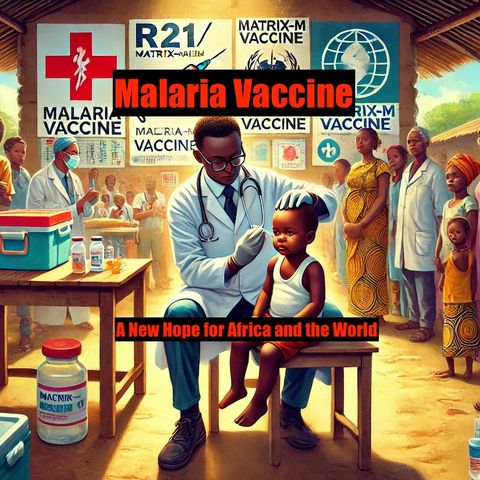Groundbreaking Malaria Vaccine Deal Sparks Global Health Optimism

Download and listen anywhere
Download your favorite episodes and enjoy them, wherever you are! Sign up or log in now to access offline listening.
Groundbreaking Malaria Vaccine Deal Sparks Global Health Optimism
This is an automatically generated transcript. Please note that complete accuracy is not guaranteed.
Description
In a significant stride towards combating one of the world's deadliest diseases, a recent announcement has energized the global health community: a landmark deal between a promising biotechnology firm and...
show moreMalaria, caused by Plasmodium parasites transmitted through the bites of infected female Anopheles mosquitoes, continues to be a major public health challenge. According to the World Health Organization, there were an estimated 241 million cases of malaria worldwide in 2020, leading to around 627,000 deaths, predominantly among children under five years old in sub-Saharan Africa. The economic impact of malaria is profound, especially in low-income countries, inhibiting economic development due to healthcare costs and loss of workforce productivity.
The announced malaria vaccine focuses on innovative approaches that go beyond the existing RTS,S/AS01 (Mosquirix™), which was the first vaccine recommended by the World Health Organization for broad use and has shown partial protection against malaria in children. While Mosquirix has been a ground-breaking step forward, its protective efficacy is about 56% against severe malaria in the first year but drops to less than 50% in the following years and requires up to four doses.
The new vaccine candidate in development promises enhancements in efficacy, durability, and delivery over previous vaccines. Utilizing advancements in genetic engineering, the vaccine aims to elicit a stronger immune response and offers longer-lasting immunity. The approach includes targeting multiple stages of the malaria parasite's lifecycle, which could potentially interrupt transmission and not just prevent disease. This is critical in achieving the ultimate goal of malaria eradication.
The Serum Institute of India, a major player in vaccine production and distribution, brings substantial manufacturing capabilities and experience in bringing vaccines to low and middle-income countries. The collaboration with the biotechnology firm includes not only development and testing but also scaling up production and ensuring affordability and accessibility of the vaccine to populations that need it the most.
As this vaccine progresses into further clinical trials, the global health community watches with anticipation. Success in this endeavor means a reduction in the burden of malaria, saving millions of lives and enhancing economic stability in affected regions. This development is a beacon of hope, heralding a possible turning point in the battle against a disease that has challenged public health for generations. The continued collaboration, innovation, and funding in vaccine research and development remain crucial as we move closer to a world free from malaria.
Information
| Author | QP-4 |
| Organization | William Corbin |
| Website | - |
| Tags |
Copyright 2024 - Spreaker Inc. an iHeartMedia Company

Comments